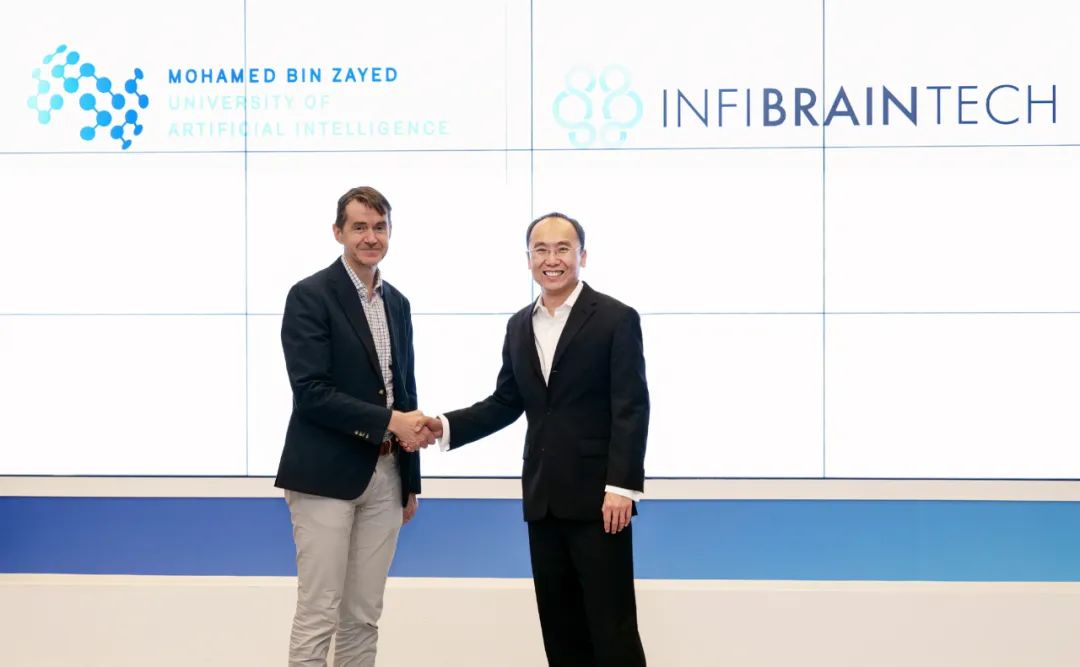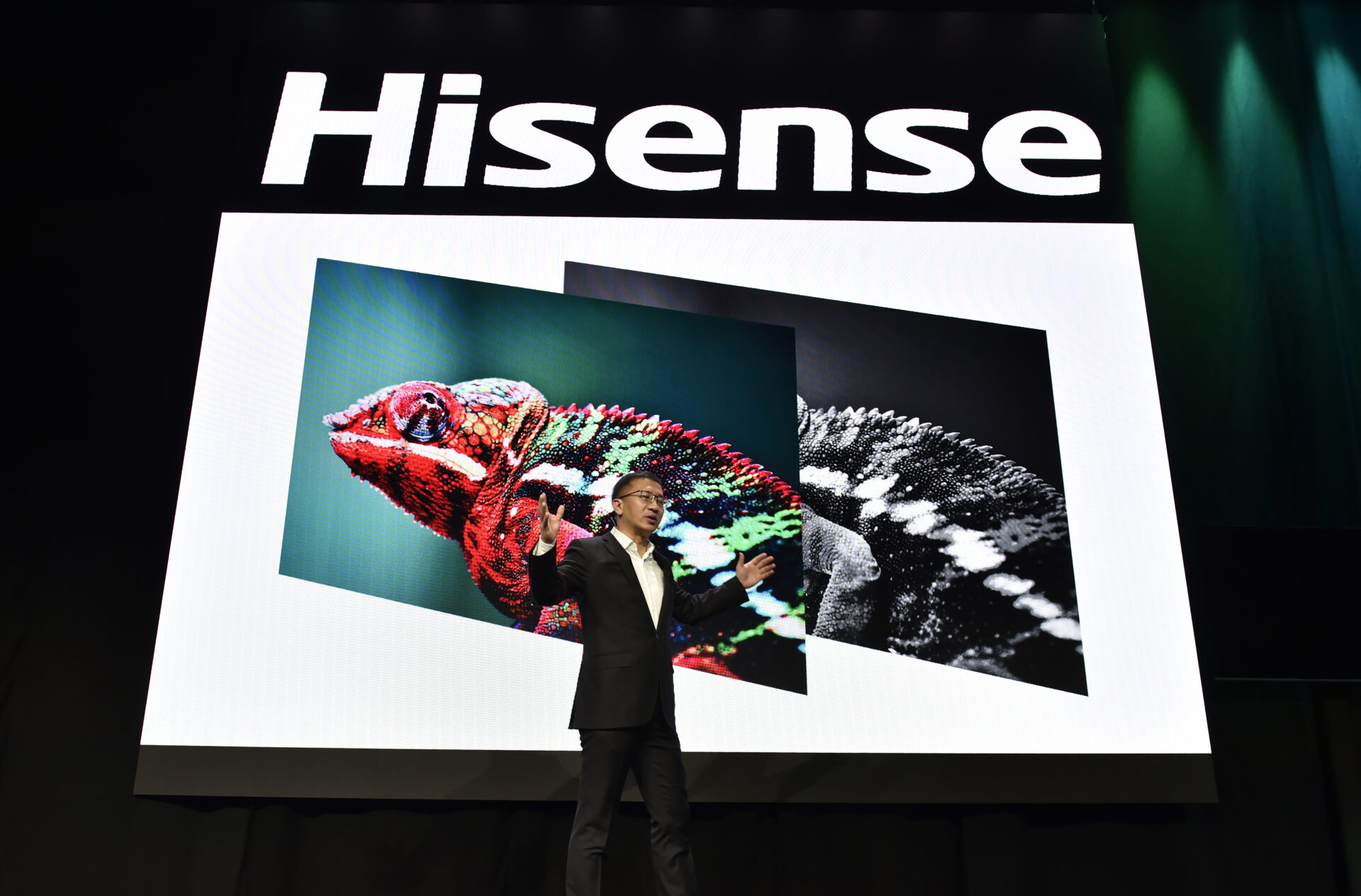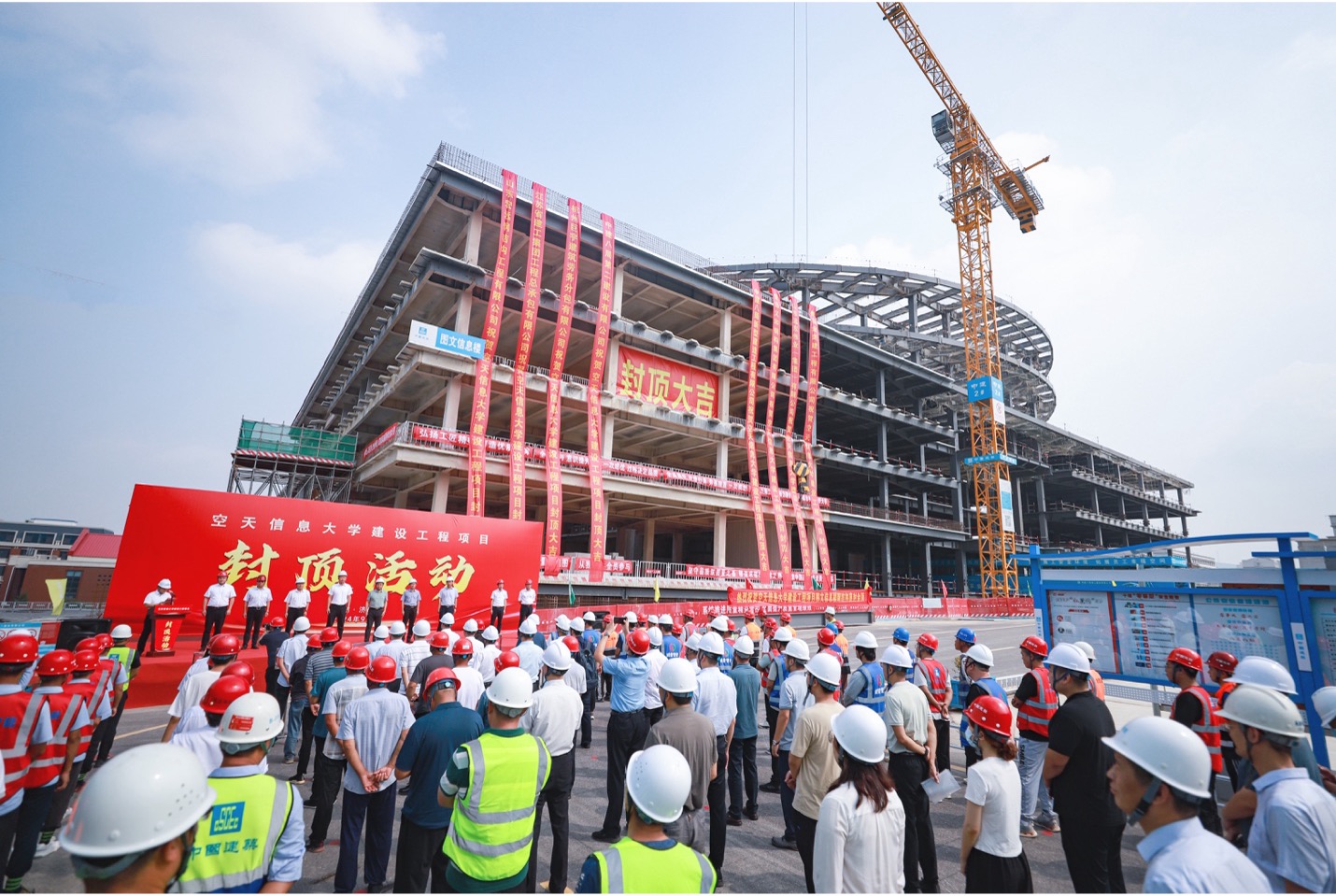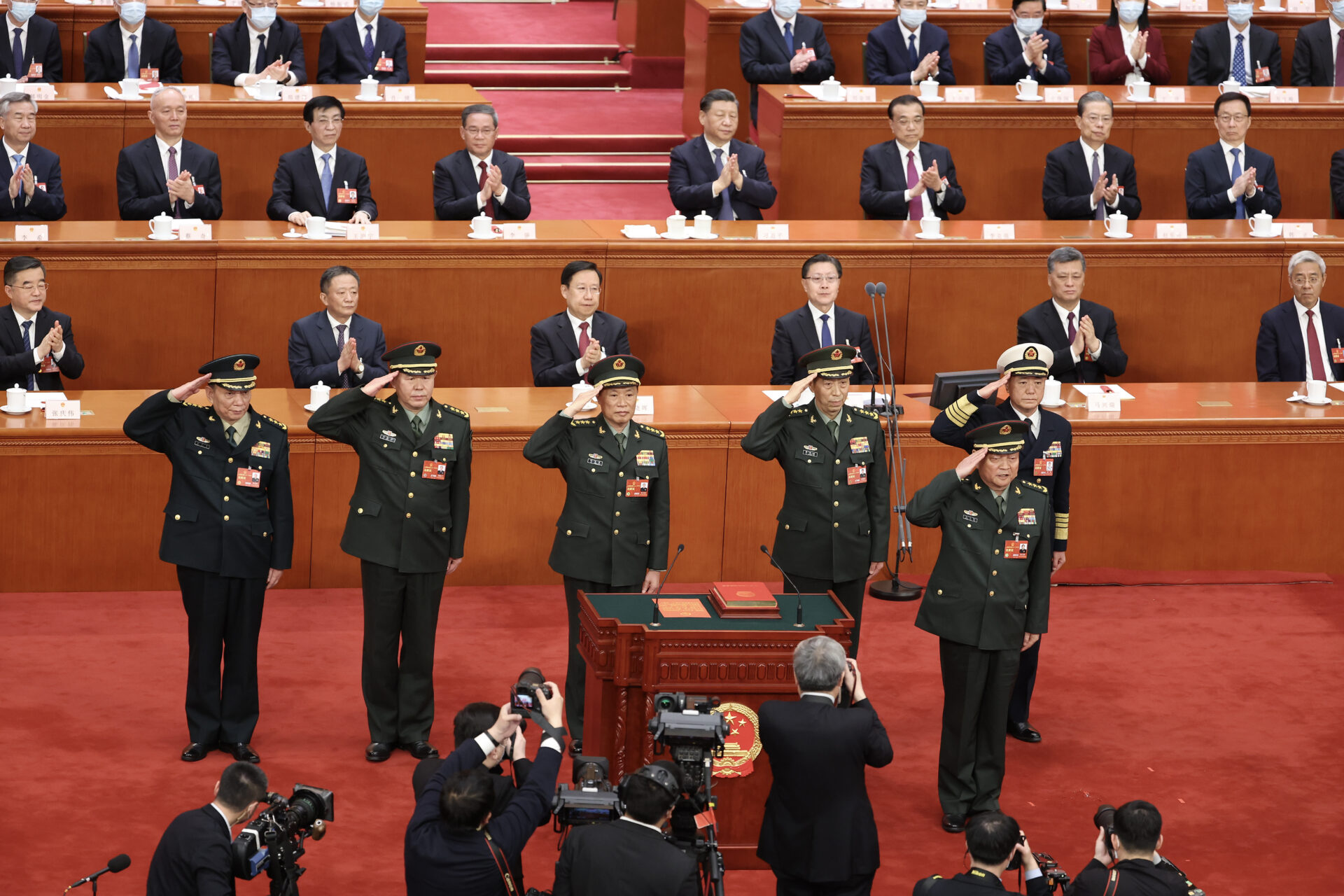
PRC-UAE Collaboration and US Technology Transfer Concerns in Abu Dhabi
PRC-UAE Collaboration and US Technology Transfer Concerns in Abu Dhabi
Editor’s Note: The Jamestown Foundation received a letter in response to this article from Eric Xing, President of the Mohamed bin Zayed University of Artificial Intelligence. Readers can find the letter in full here, or by scrolling to the bottom of this article. We have made several minor updates to the article following Professor Xing’s comments, which are italicized in the text.
Executive Summary:
- The Mohamed bin Zayed University of Artificial Intelligence (MBZUAI) poses a high risk of technology transfer due to its deep connections to the People’s Republic of China (PRC) and its collaborations with leading US technology companies and universities.
- MBZUAI—and thus PRC researchers—have access to chips that are currently under US export controls to the PRC, such as NVIDIA A100 GPUs, and have received resources from the US Department of Defense and Intelligence Community that are intended to support US national interests.
- MBZUAI’s president, founding members, trustees, and board members have connections to united front organizations involved with technology transfer or have received awards from PRC government entities.
- Since its inception, MBZUAI has aligned with Beijing’s explicit policy goals for deepening AI cooperation to achieve its strategic ambitions.
On August 1, Politico reported that Microsoft had decided to scale back its $1.5 billion partnership with the Abu Dhabi artificial intelligence (AI) firm Group 42 (G42) (Politico, August 1). While Microsoft did not specify a reason for the action, the US Government’s House Select Committee on Strategic Competition between the United States and the Chinese Communist Party recently called out G42 for its connections with the People’s Republic of China (PRC) (Select Committee on the CCP, January 9). G42, however, is not the only organization in the gulf state that the United States should be concerned about. Connected to G42 through its trustee Xiao Peng (肖鹏), the Mohamed bin Zayed University of Artificial Intelligence (MBZUAI) aligns with the global ambitions of the Chinese Communist Party (CCP). Established in 2019 in cooperation between the United Arab Emirates (UAE) and the PRC, MBZUAI appointed one of the PRC’s “leading AI scholars” as its president, and includes many western academics among its faculty (UAE Embassy in China, July 8, 2021). The university also has access to technology from leading US firms. This raises the possibility that the PRC could use the university or similar organizations in third countries to circumvent US technology controls and acquire advanced US technologies.
MBZUAI Aligns With State Council Policy
The CCP considers AI a crucial resource for gaining the upper hand in its ongoing great power competition with the United States. In October 2018, CCP Chairman Xi Jinping stated that “accelerating the development of next-generation AI is an important strategic move for us to gain the initiative in global technological competition” (Xinhua, October 31, 2018). The “Next-generation AI Development Plan,” published by the PRC State Council in July 2017, states that “the world’s major developed countries view the development of AI as a major strategy to enhance national competitiveness and maintain national security … they strive to take the lead in the new round of international technological competition” (State Council, July 20, 2017). It goes on to say that the PRC needs to “position the development of AI at the national strategic level in a systematic layout” and “seize the strategic initiative in the new stage of international competition in AI development … [to] effectively ensure national security.” Among the plan’s main tasks are “supporting domestic AI enterprises in collaborating with leading international AI universities” and “promoting the establishment of international AI technology cooperation bases and joint research centers” along One Belt One Road (OBOR) initiative countries. In this way, MBZUAI, which was founded two years after the State Council promulgated this plan, appears to perfectly align with the goals of the PRC central government.
In its own National Strategy for Artificial Intelligence 2031, the UAE has articulated an ambition to become a world leader in AI (UAE Minister of State for Artificial Intelligence Office, 2018). This makes it an ideal partner for the PRC to implement its policy prescriptions. The PRC and UAE have consequently deepened cooperation in recent years. In July 2018, they upgraded their relationship to the level of “comprehensive strategic partnership” and the UAE officially joined OBOR (MFA, April). In July 2019, a joint statement on strengthening this partnership aimed to “advance the exchange of professionals and experts, jointly build laboratories, cooperate in science parks, and engage in technology transfer” and “exchange experiences in high-tech industries such as … AI …to create new areas of cooperation” (Xinhua, July 23, 2019). A few months later, MBZUAI was established.
MBZUAI’s People and Their Party Connections
MBZUAI is the first university focused on graduate-level AI research established in Abu Dhabi. According to its website, it was established to support the UAE’s National Strategy for AI. The university aims to attract top global talent, providing full scholarships to admitted students and fostering an environment conducive to innovation. MBZUAI claims to be fully funded by the UAE government, though the UAE-based think tank Trends Research & Advisory has highlighted cooperation from PRC entities in building MBZUAI, and PRC firms such as Huawei have supported researchers and projects (MBZUAI, Accessed August 6; Trends Research & Advisory, March 26).
MBZUAI is linked with organizations and individuals with strong ties to the PRC government. The university was incubated by Shao Ling (邵岭) as its first Executive Vice President and Provost, and by his UAE-based national research organization the Inception Institute of Artificial Intelligence (now part of G42) (See Appendix 1; British Chinese Society of Health Informatics, July 31, 2020). Shao is now Chief Scientist and President of Terminus International, an AI smart service provider. In addition, Shao attended a 2012 event hosted by the Guangdong Bureau of Foreign Experts Affairs, a local-level branch of the State Administration of Foreign Experts Affairs (SAFEA), an organization that is involved with technology transfer (Guangdong University of Technology, December 7, 2012).
Besides Shao Ling and Xiao Peng, MBZUAI’s current president Eric Xing (邢波) is also connected to the PRC. Xing, professor at Carnegie Mellon University (CMU), was appointed as a “Zhongguancun Overseas Strategic Scientist” in March 2017 at the Beijing-Silicon Valley High-end Talent Summit by the head of Beijing Talent Work Leading Group, a local level agency in charge of coordinating talent work (Career Engine, March 10, 2017). The Zhongguancun Overseas Scientists Office, which is housed at the ZGC Innovation Center at Silicon Valley and is referred to in an official document as a “technology transfer cooperation platform,” encouraged Xing and other scientists to “use offshore innovation resources to carry out scientific research” (Luyi Talent Information Network, April 16, 2018; People’s Daily, March 7, 2017). Xing also runs an AI startup, Petuum. Investors in the startup include Advantech Capital (尚珹资本), whose founder Yu Jianming (于剑鸣) is close to former PRC Premier Wen Jiabao’s family. Others include Oriza Ventures, an investment arm of the Suzhou government (Yiming Net, October 11, 2017; Voice of America, May 20, 2016; Reuters, June 29, 2018).
One of MBZUAI’s founding board members, Andrew Chi-Chih Yao (姚期智), current head of CollegeAI at Tsinghua University, also has links to the PRC government. In 2005, Beijing presented him with the Chinese Government Friendship Award, which SAFEA awards to “commend foreign experts who have made outstanding contributions to China’s reform and development” (Institute for Interdisciplinary Information Sciences, Tsinghua University, October 14, 2005; Australian Strategic Policy Institute [ASPI], August 20, 2020).
Kai-Fu Lee (李开复), Chairman and CEO of Sinovation Ventures, is also an MBZUAI trustee. Lee has been recognized as one of “40 Chinese Returned Overseas Students in 40 Years of Reform and Opening-up” by united front-affiliated organizations, which are central to illicit technology transfer efforts in the PRC (Global Times, December 22, 2018; ASPI, June 9, 2020). In August 2019, Lee became a board member of the Chinese Academy of Science and Technology for Development’s National High-level Think Tank (中国科学技术发展战略研究院国家高端智库), which is directly affiliated with the PRC Ministry Of Science and Technology (MOST). MOST is a member of the Central Leading Group on Talent Work that has highlighted returnee scientists as targets for knowledge and technology transfer (ZGC Forum, Chinese Academy of Science and Technology for Development, accessed August 7; State Council, November 7, 2017; MOST, October 12, 2021).
Min Wanli (闵万里), who sat on MBZUAI’s advisory board until at least November 2022, has similar connections. In 2014, he was recognized as a Zhejiang Province Distinguished Expert for Overseas High-Level Talent; in 2018 he was appointed to the advisory committee of the next-generation AI strategy under MOST; and in 2019 he was selected as a Zhejiang provincial “Thousand Talents Plan” expert (MBZUAI, Accessed November 11, 2022; Sohu, November 27, 2023; Zhejiang Haibang Investment, April 11, 2019). (Following the publication of this article, Min Wanli’s name disappeared from the list of members of MBZUAI’s advisory committee on the university’s website. In his letter to us, MBZUAI President Eric Xing wrote, “we have no record of Dr. Min ever participating in any MBZUAI Advisory Board meetings. Although it was never actually taken up, since it was made in 2021, his appointment on our board has subsequently been terminated.”)
Table 1: MBZUAI Personnel With Potential Connections to PRC Technology Transfer
| Name | Leadership position at MBZUAI | Potential technology transfer connection |
| Eric Xing | President | “Zhongguancun Overseas Strategic Scientist” by the head of Beijing Talent Work Leading Group. |
| Shao Ling | Founding member and former Executive Vice President and Provost | Attended the event “hundreds of overseas experts visit to Guangdong” hosted by the Guangdong Bureau of Foreign Experts Affairs. |
| Min Wanli | Former advisory board | Zhejiang Province Distinguished Expert for Overseas High-Level Talent in 2014;
Member of the advisory committee of the next-generation AI strategy under MOST in 2018; Zhejiang provincial “Thousand Talents Plan” expert. |
| Lee Kai-Fu | Trustee | “40 Chinese Returned Overseas Students in 40 Years of Reform and Opening-up” honoree by united front-affiliated organizations; board member of the Chinese Academy of Science and Technology for Development’s National High-level Think Tank, which is directly affiliated with MOST. |
| Andrew Chi-Chih Yao | Founding board member | 2005 Chinese Government Friendship Award from the State Administration of Foreign Experts Affairs. |
| Xiao Peng | Trustee | (See Select Committee on the CCP, January 9.) |
| Daniela Rus | Trustee | Honorary Professor, Shanghai Jiao Tong University (John Hopcroft Center for Computer Science, June 30, 2020.) |
| Anil Kumar Jain | Trustee | Foreign member of the Chinese Academy of Sciences (Academic Divisions of the Chinese Academy of Sciences, Accessed August 5.) |
| Michael Brady | Trustee | Honorary Professor, Central South University (Central South University, October 27, 2010.) |
Huawei, Other PRC Entities Collaborating With MBZUAI
Beyond the people involved with the university, MBZUAI has also built relationships and collaborated with PRC companies and institutions. In March 2023, it signed a five-year research and development cooperation agreement with Beijing Infinite Brain Technology Company (无疆科技; IBT) to establish a joint research laboratory that develops digital therapeutic products for human brain health by advancing and optimizing AI technology (IBT, March 24, 2023). IBT was co-founded by Xue Gui (薛贵), a Changjiang Scholar chair professor in the National Key Laboratory of Cognitive Neuroscience and Learning at Beijing Normal University (BNU) (IBT, January 20, 2023). In the same month, MBZUAI established a strategic partnership with BioMap (百图生科) to create the first biocomputing innovation research laboratory in the Middle East (China Council for the Promotion of International Trade Beijing Sub-council, March 9, 2023). BioMap was established by Baidu CEO Robin Li (李彦宏), who has been a member of the Chinese People’s Political Consultative Conference (CPPCC) and the vice chair of the All-China Federation of Industry and Commerce (ACFIC), both of which are part of the CCP’s united front system (ACFIC, May 22, 2020).
MBZUAI also works with PRC tech giants with strong government links. For example, Huawei has supported individuals with affiliations to MBZUAI and provided them with GPU computing services for research (MBZUAI, September 1, 2022; January 1, 2023; July 23, 2023). The university has also connected its students with Huawei through the Student Opportunities Fair (MBZUAI, March 22, 2022). Both MBZUAI and Huawei are part of the National Program for Coders established by the UAE government that, according to the UAE’s Minister of State for Artificial Intelligence, Digital Economy and Remote Work Applications Omar Sultan Al Olama, “activates the global public and private partnerships within the framework of the program” (MBZUAI, July 15, 2021).
Accessing US AI Technologies
MBZUAI has been able to access AI technologies from US companies. According to its website, the MBZUAI campus is “furnished with top-of-the-line GPU facilities and has access to more than 800 NVIDIA GPUs,” including 400 A100 chips banned by the United States in October 2022 (MBZUAI, Accessed August 6; US Security and Exchange Commission, October 17, 2023). (Eric Xing clarifies in his letter that the chips owned by MBZUAI were procured through legal channels and that “MBZUAI maintains rigorous controls over access [to] and use of its facilities, fully complying with US export controls.”) In October 2022, Texas-based Hewlett Packard Enterprise announced that it is building a new supercomputer for MBZUAI to enhance the university’s ability to run complex AI models (MBZUAI, October 12, 2022).
MBZUAI has been seeking to establish strategic partnerships with leading AI institutions globally, but especially those in the United States. In May 2022, MBZUAI signed a Memorandum of Understanding with IBM to establish an AI Center of Excellence. Under the MoU, IBM has provided training and technology, including IBM tools, software, courseware, and cloud accounts, to support the university’s aim of becoming a global leader in AI research and applications (IBM, May 25, 2022). The center was officially launched in January 2023 to develop carbon neutral solutions to existing energy supplies and improve natural language processing for Arabic dialects (IBM, January 18, 2023). In November 2023, the university worked with IBM to apply the company’s geospatial foundation model to understand the urban environment in Abu Dhabi (IBM, November 30, 2023). MBZUAI is also a member of the AI Alliance, a group launched by IBM and Meta in December 2023. According to a Meta blog post, the alliance “supports open innovation and open science in AI” (Meta, December 4, 2023).
In January this year, a research project titled “Concept-centric Representation, Learning, Reasoning, and Interaction” received a $4 million grant from the US Department of Defense and intelligence community on AI collaboration in defense (UC San Diego, January 24). Eric Xing, who is the president of MBZUAI and concurrently a professor at US-based Carnegie Mellon University, is a co-investigator on the project (CMU, last accessed August 15). (Xing clarified in his letter to the Jamestown Foundation that any funding he receives from the US Government is for work and duties he undertakes in the United States through his affiliation as a professor at Carnegie Mellon University, and is unrelated to his roles and work at MBZUAI.) Other partners of the university include Meta, Amazon, the University of Michigan Ann Arbor, the Center for the Theoretical Foundations of Learning, Inference, Information, Intelligence, Mathematics and Microeconomics at UC Berkeley (CLIMB), Cerebras System, CMU, Stanford, and New York University (NYU) (MBZUAI, May 6; MBZUAI, July 15, 2021; CLIMB, Accessed August 8; MBZUAI, June 22, 2023; Cerebras, August 30, 2023; NYU Abu Dhabi, September 29, 2022).
Conclusion
Collaboration between the PRC and the UAE in AI, exemplified by G42 and MBZUAI, form part of the PRC’s strategy to achieve its ambitions of becoming a global leader in AI. This is reinforced by the projects’ various connections to the CCP, PRC organizations engaged in technology transfer, and state-funded entities in the PRC that support its Military-Civil Fusion Development Strategy.
The involvement of such entities in such close proximity to leading US technology companies, collaborating with US universities, and benefitting not just from US government funding but also from chips that violate current US export controls, suggest that more scrutiny is required and more action taken to ensure US national security and preferences are being maintained. More broadly, it suggests that the PRC is increasingly adept at deploying resources in third countries to circumvent US restrictions and achieve its ends. Given the extensive partnerships MBZUAI has established with leading US technology companies, it is crucial for the United States to closely monitor the university’s development and scrutinize the relationships it builds to safeguard its technological assets.


